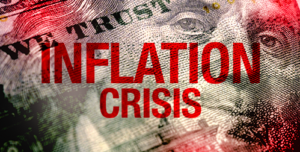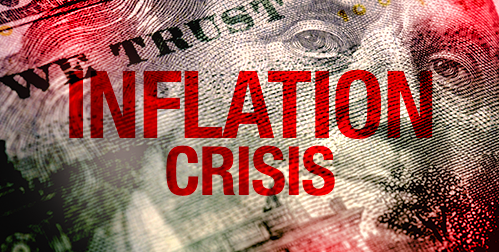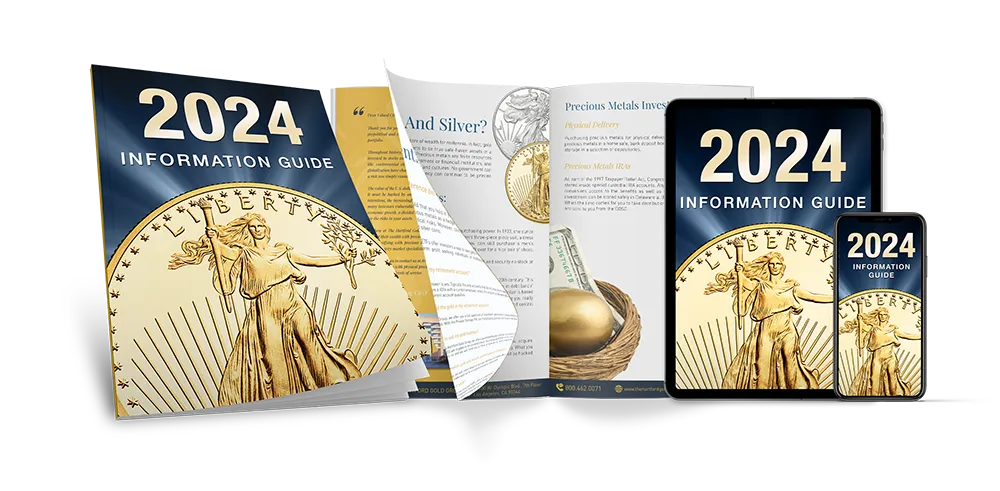- Newly released inflation data suggest inflation could be at a peak
- The stock market experienced massive drops in reaction to the Fed’s inflation numbers
- Trader’s ‘fear gauge’ implies the market hasn’t hit bottom yet, seek safe haven assets
Peak Inflation May Have Been Reached
Just because things aren’t getting worse, doesn’t mean they are getting better. Newly released inflation data suggests the U.S. may have hit peak inflation. The consumer price index accelerated 8.3% in April, more than the 8.1% estimate. It is near the highest level in more than 40 years. However, this is down from 8.5% in March. Some economists are seizing this as a sign that we’ve hit peak inflation.1
However, core CPI, which excludes food and energy, was higher than expected, rising 6.2%. Shelter costs, which comprise about one-third of the CPI, rose at their fastest pace since 1991. And inflation-adjusted earnings continued to decline for workers. This rise clouds the hopes that inflation has actually peaked. The Bureau of Labor Statistics reported on Wednesday that the continuing climb has pushed consumers to the brink and is threatening the economic expansion.2
The Federal Reserve considers inflation the single biggest threat to the economic recovery from the Covid pandemic. Bringing the record inflation under control has become their singular focus. The Fed last week raised interest rates by 50 basis points. Chair Jerome Powell said two more such hikes were likely at the upcoming policy meetings. There has also been speculation in markets the U.S. central bank will need to move by 75 basis points at one meeting.
Morgan Stanley now forecasts 2022 global economic growth to be less than half of last year’s. These signs of slowdowns might be exactly what the Fed is hoping for. The central bank is looking to slow growth via its interest-rate hikes, just not so much that it causes a severe contraction. Chair Jerome Powell said last week that nothing suggested the economy is close or vulnerable to a recession. However, economists and the market disagree.

Stock Market Responds to the Fed with Wild Volatility
Following the announcement of rate increases, the markets went into free fall as investors sold everything. Traders hit the sell button on virtually every key asset class — including stocks, bonds and bitcoin — ratcheting up the fear factor on Wall Street. The S&P was sent reeling to its weakest levels in a year. U.S. stocks have now seen a string of days with drastic losses.
The VIX, aka ‘Wall Street’s fear gauge’ is still not signaling that the stock-market bottom is near, analysts said Monday. The VIX is referred to as Wall Street’s ‘fear gauge’ because it tends to rise when stocks tumble. According to analysts, the VIX indicates investors fear an even deeper selloff in coming months as the Fed prepares to continue tightening aggressively in its effort to rein in inflation.
Investors are ditching the market and searching out safer terrain. While bonds have historically been a good addition to reduce portfolio risk, today’s inflationary environment is likely to substantially decrease the benefits of bonds. Government paper has relinquished its traditional role as a safe-haven when stocks are in turmoil.
Meanwhile, gold bounced up as the dollar retreated after the inflation data announcement. Gold’s uptick resumed on Wednesday.
There is the possibility that we are at peak inflation. But based on the reaction of the market, the climb down is going to be slow and dangerous. The Fed’s desire to engineer a soft landing for the economy is getting tougher by the day. The truth is that no one knows when inflation will hit a ceiling and when stocks will hit the floor. The smart move now is protecting your assets. To lean how a Gold IRA can secure your funds, contact AHG today.

